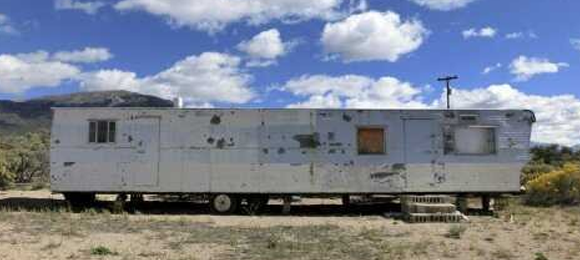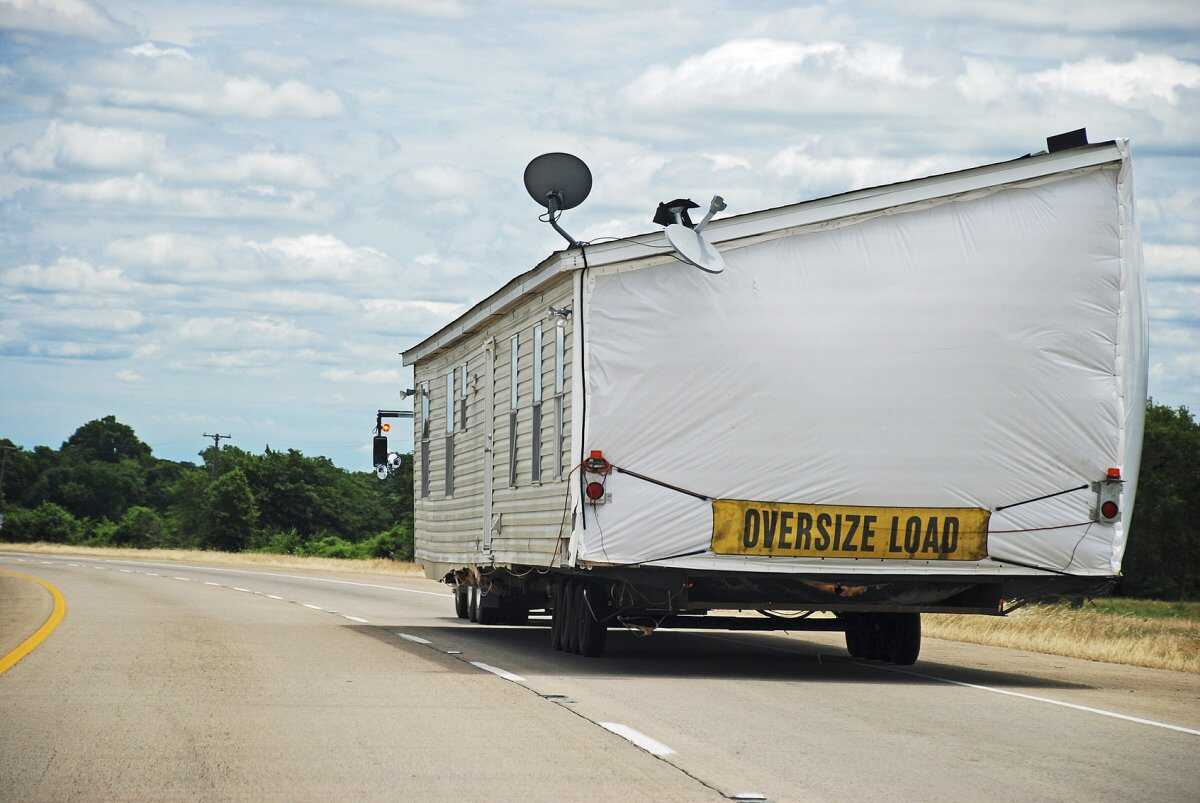
Updated June 6, 2023
There's more than one way to get rid of your mobile home.
All good things must come to an end, and when it comes to mobile homes, there are a number of options to choose from when it's time to put an "end" to yours.
The mobile home disposal method best for you depends on a number of factors and considerations, like the state of your home, where you're located, and your budget.
We'll go over:
- Option 1: Demolition
- Option 2: Deconstruction
- Option 3: Relocation
- Option 4: Donation
- Option 5: Selling
Find a mobile home demolition contractor in your area
Option 1: Demolition
Process
- Receive quote(s) from desired contractor(s).
- Choose the right contractor for the job.
- Get a permit.
- Mobile home is torn down.
- Salvageable metal is separated.
- Remaining debris is hauled away
Permits
In nearly every zoned township in the country, permits are required when demolishing a mobile home.
These permits typically require a fee, which can range anywhere from $100 to $350 or more.
Like everything else, it all depends on where you live.
Make sure you discuss with your contractor who will be responsible for getting the necessary permits and whether or not they are included in the price.
Keep reading: What Needs to Be Done Before Demolishing or Removing a Mobile Home
Cost
The national average cost to demolish a mobile home is $3.50-$5 per square foot, so a 15 ft x 50 ft home would be around $2,625-$3,750 to remove, on average.
However, several things will affect this price. For example, if your mobile home has a shingle roof, extra labor will be required and there will be a higher disposal weight/fee.
Not only that, but your location and the size of your home is also a huge factor in price.
The same goes for a mobile home full of belongings. If your home is empty, it will cost less to haul and dispose of.
If you have the strength and relative know-how, you can tear apart the most salvageable aspects of your mobile home for scrap on your own.
The outer steel panels may be a bit of a pain to cut, but the rest shouldn’t be too much work.
The average 12 ft x 60 ft mobile home can be worth anywhere from $200-$700 in recycled metal.
Time
Traditional demolition is pretty quick and painless with the help of the right heavy-duty equipment.
It shouldn't take more than a few hours to see your home completed demolished.
Find a local mobile home demolition contractor
Option 2: Deconstruction
Process
- Receive quote(s) from desired contractor(s).
- Choose the right contractor for the job.
- Get a permit.
- Mobile home is disassembled piece by piece.
- Salvageable materials are separated.
- Remaining debris is hauled away.
Permits
Just like demolition permits, you're likely to need to acquire a permit for deconstruction, too. These are usually similar in price no matter where you live, ranging most commonly between $100 and $350.
Make sure you discuss with your contractor who will be responsible for getting the necessary permits and whether or not they are included in the price.
Cost
Deconstruction can stretch to almost double the cost of traditional demolition, reaching upwards of $8,000 in some cases.
Ways to save: If your home is in decent shape, there are many companies that may be willing to deconstruct it for charity. Not only are you helping your community, but your mobile home deconstruction is considered a tax write-off.
Time
As you can imagine, it takes longer to deconstruct a house than it does to demolish it.
For the average mobile home (depending on how much salvageable materials are in your home), it could take anywhere from a full workday to a few days.
Option 3: Relocation

Process
- Receive quote(s) from desired contractor(s).
- Choose the right contractor for the job.
- Get the necessary permits.
- Stairs, decks, and porch roofs are removed.
- Utilities are disconnected, the skirt is removed, and underground ties are released. (In some cases, the mobile home must be separated into two parts for transportation.)
- Home is crane lifted onto a flatbed trailer.
- Trailer hauls mobile home to the intended destination.
- Mobile home is set up and reconnected in its new location.
Permits
If you intend to relocate your mobile home, you'll need to acquire proper permits ensuring your home is in decent shape and fit for transporting via the highway.
Make sure you discuss with your contractor who will be responsible for getting the necessary permits and whether or not they are included in the price.
Cost
If you’re thinking about moving your mobile home, expect to pay anywhere from $3,000 - $12,000 in order to have it properly prepared, moved, and set up in its new location—depending on how far you intend to transport it, of course.
Time
After ensuring the house is prepped and fit for transportation, the actual relocation process takes as long as it takes to drive it from point A to point B; then multiply that number by about five to account for lowered speed and checkpoints to ensure the home is properly secured.
Option 4: Donation
Many local fire departments offer a tax write-off for the ability to use your mobile home as a burn exercise, so be sure to inquire with them if that’s an option (if you’re interested).
Process
There are a few different ways you can donate your mobile home: to a charitable organization, to an individual in need, or to your local fire department.
Donating to a charity/individual:
- Ensure your home meets building codes. (If it doesn't meet the necessary codes, then donation won't be an option for you.)
- Find a charity/someone interested in your mobile home (Kars 4 Kids and The Freecycle Network are good resources.)
- Arrange to have your mobile home removed from your property.
Donating to your local fire department:
- Reach out to your local fire department to see if they're interested in using your mobile home for a controlled burn exercise.
- As shown in the above video, your local fire department comes to your property and burns your mobile home down.
Cost
Another great thing about helping others...it's FREE!
Time
With so many different donation options, they take various amounts of time to complete; but once it is confirmed your house meets building codes, it takes no more than a day to donate it to anyone—charity, individual, fire department, or otherwise.
Find a mobile home demolition contractor
Option 5: Selling
Process
Selling your home is pretty straightforward. Simply find a buyer, and they take care of the rest.
Here are some good places to look if you're interested in selling your home:
Cost
Good news: You make money in this scenario.
Time
Selling your mobile home takes time, just as it does to sell any traditional home, so how long it takes to sell all depends on your local market.
Do Your Research and Hire the Right Contractor
The most important rule to remember is: Be sure you hire a contractor insured to do demolition work.
If you go with an uninsured contractor, you could be the one slammed with the bill if an accident happens.
Ask the contractor for an insurance certificate listing you as the certificate holder. If the contractor is properly insured, it won't be a problem for them to get one because these certificates are issued directly from the insurance company.
Learn more about hiring the ideal contractor:
- Avoid These 5 Red Flags When Hiring a Contractor
- 7 Keys to Successfully Hiring a Demolition Contractor
- Licensing 101: A State-by-State Guide to Contractor License Requirements
- 2 Jobs, 1 Contractor: How to Save Money on Demolition Projects
Manage Project Debris Responsibly
A common thing for homeowners to forget is what happens after their home is torn down.
If you have young children who will be in the area after the mobile home is gone, then you won’t be happy with a bunch of sharp rusty metal littering your yard. (Chances are, you won't be happy with that even if you don't have young children, but you get the idea...)
It's important to discuss your desired clean-up standards with your contractor.
Also, be sure to reach an agreement with them regarding who will be paying for the dumpsters and disposal fees.
If your contractor tells you that you will be responsible for paying for the dumpsters, have them clarify how many dumpsters they think will be needed and what the approximate cost will be. Add that cost to the quote they gave you to know the total cost of the demolition.
The average mobile home demolition produces less than two 40-yard dumpsters worth of debris, but that debris can weigh up to 12 tons, which costs a pretty penny to dispose of.
Throughout the country, dumpster costs vary immensely, and if they are not loaded correctly, you can wind up emptying your wallet for dumpster and disposal fees alone.
Hometown makes it easy to rent dumpsters from reputable companies, too!
Contact a mobile home demolition in your area
Learn more about dumpster sizes and pricing:

